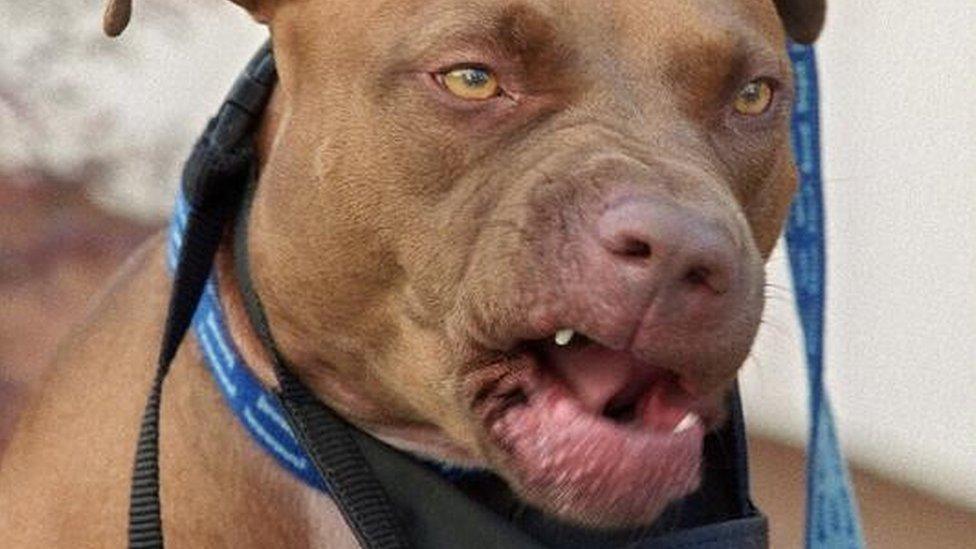MPs to examine Dangerous Dogs Act
- Published
- comments
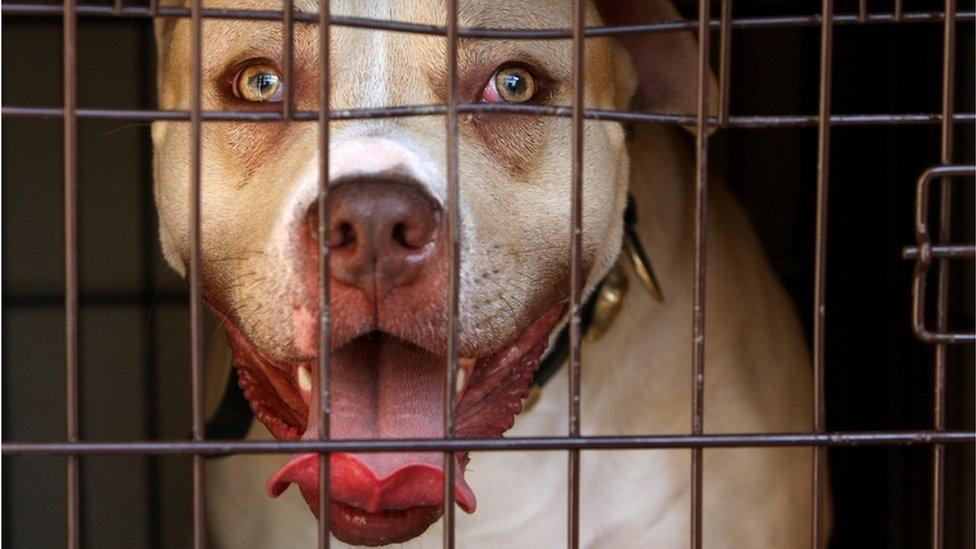
Four breeds are banned in the UK: the pit bull terrier, Japanese tosa, dogo Argentino and fila Brasileiro
MPs are to investigate the effectiveness of the 1991 Dangerous Dogs Act amid figures suggesting there has been an increase in attacks.
Hospital admissions for dog attacks rose by 76% in a decade, according to the Environment, Food and Rural Affairs Committee.
It will examine whether the public is being properly protected and look at animal welfare concerns.
The RSPCA says the law is "ineffective and unjust" and needs replacing.
Breeds banned by the act are the:
pit bull terrier
Japanese tosa
dogo Argentino
fila Brasileiro
Owners can get a certificate of exemption if a court believes the dog is not dangerous.
The 1991 act also makes it an offence for an owner to allow any dog "to be dangerously out of control".
The legislation was aimed at reducing dog attacks, but figures from 2015 suggested hospital admissions related to them had risen 76% from the same period 10 years previously.
And the committee pointed to RSPCA figures suggesting that of the 30 people killed by dogs between 1991 and 2016, 21 had been attacked by dogs that were not banned.
The charity has since updated this figure to 37 deaths, of which 28 involved non-banned breeds.
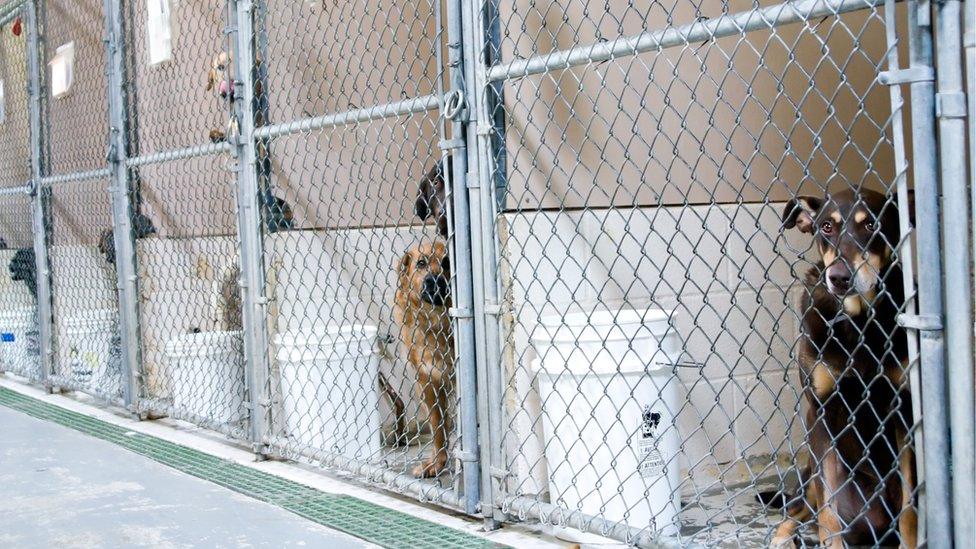
The Environment, Food and Rural Affairs Committee will investigate:
whether the law is preventing dog attacks
what lessons can be learned from other countries
whether any changes are needed
Neil Parish, who chairs the committee, said: "Four types of dog were banned in the UK in 1991, but since then 70% of dog-related deaths have been caused by those not prohibited by legislation.
"There is evidence to suggest that we should account for the temperament of the dog when assessing its danger to society.
"There is also the view that some banned dog breeds can be suitable pets in certain circumstances.
"Our inquiry will look at whether the government should be taking a more individualised approach to judging the threat posed by dogs, or whether blanket bans remain the most appropriate means of regulation."
Among those who have criticised the legislation are the Kennel Club and Battersea Dogs & Cats Home.
Conservative MP Andrew Rosindell called for a review two years ago, arguing the act was "simply not effective" and that the problem was not with the dogs but with their owners.
The RSPCA has campaigned against "breed specific" legislation, arguing that the evidence is not there to suggest the banned breeds are more aggressive.
'Kennelled unnecessarily'
RSPCA dog welfare expert Samantha Gaines said she was pleased MPs had "listened to the serious concerns of animal welfare organisations".
"We strongly believe that breed-specific legislation is ineffective at protecting the public and compromises dog welfare," she said.
"The fact is that the way a dog looks and his breed is not a predictor of whether he or she is likely to be aggressive."
She said thousands of dogs had been put down or "kennelled unnecessarily", while fatal dog attacks had continued.
The Dangerous Dogs Act has been amended over time.
In 2014, sentencing guidelines in England and Wales were changed to raise the maximum jail sentence for a fatal dog attack from two years to 14.
The law was also extended to include attacks on private property. And the police and authorities were given powers to require owners to attend dog training classes or muzzle their dog in public.
- Published20 August 2016

- Published19 August 2016
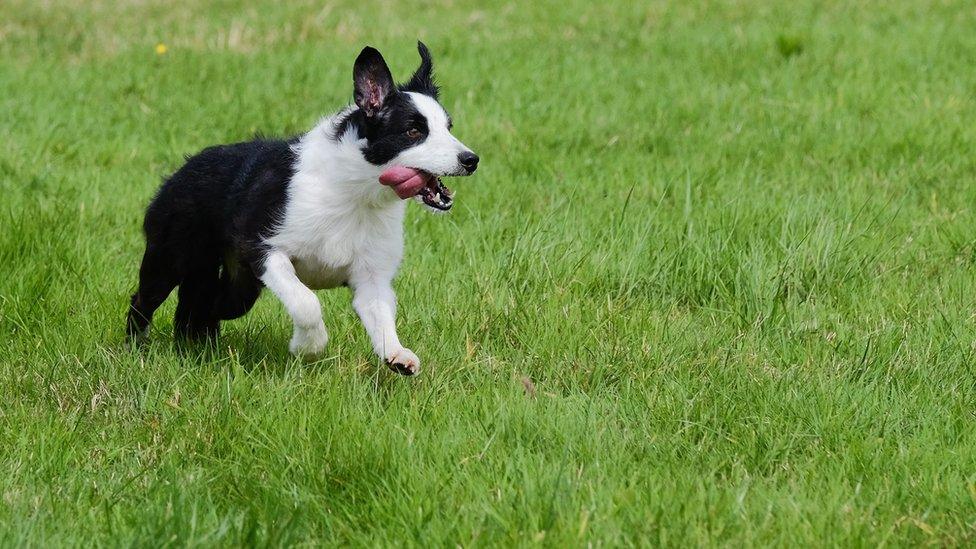
- Published13 August 2016
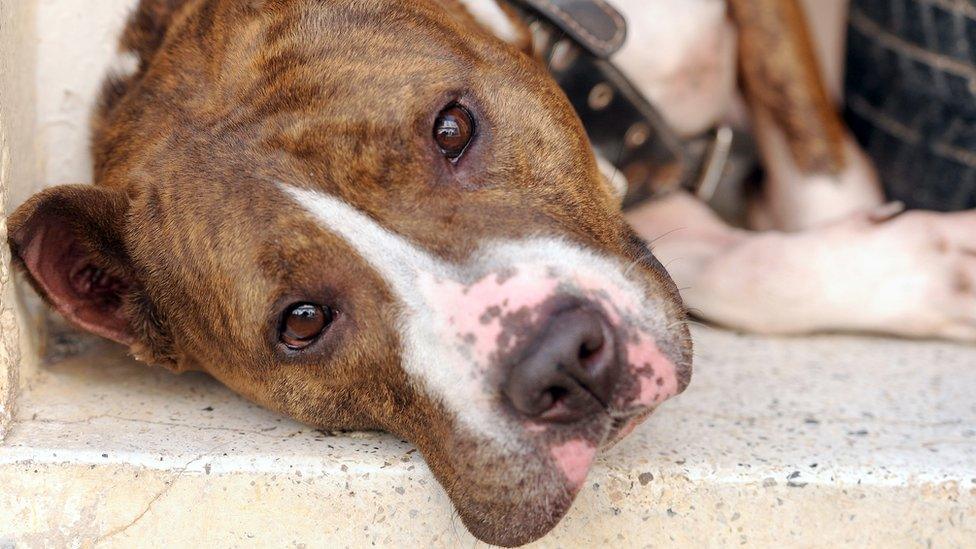
- Published28 May 2015
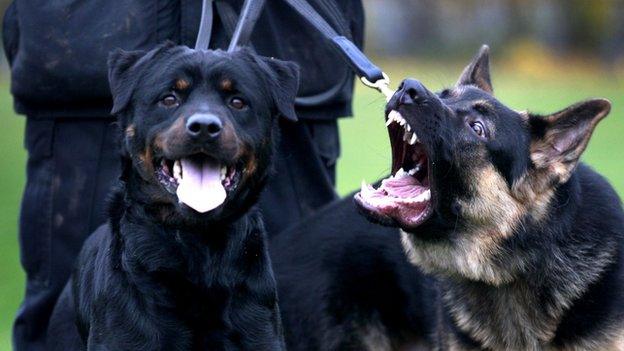
- Published24 May 2016
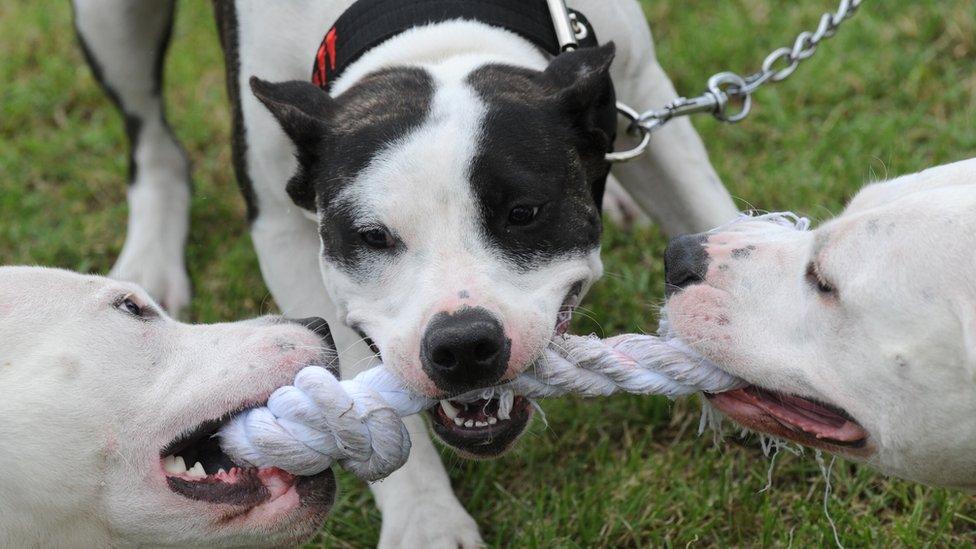
- Published13 April 2016
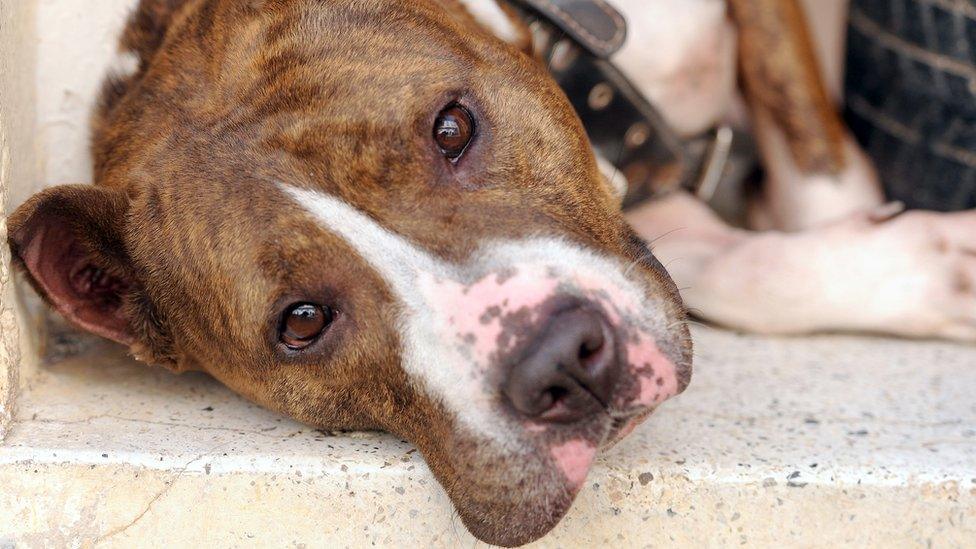
- Published13 April 2016
